4 Ways to Use Aloe Vera for Acne
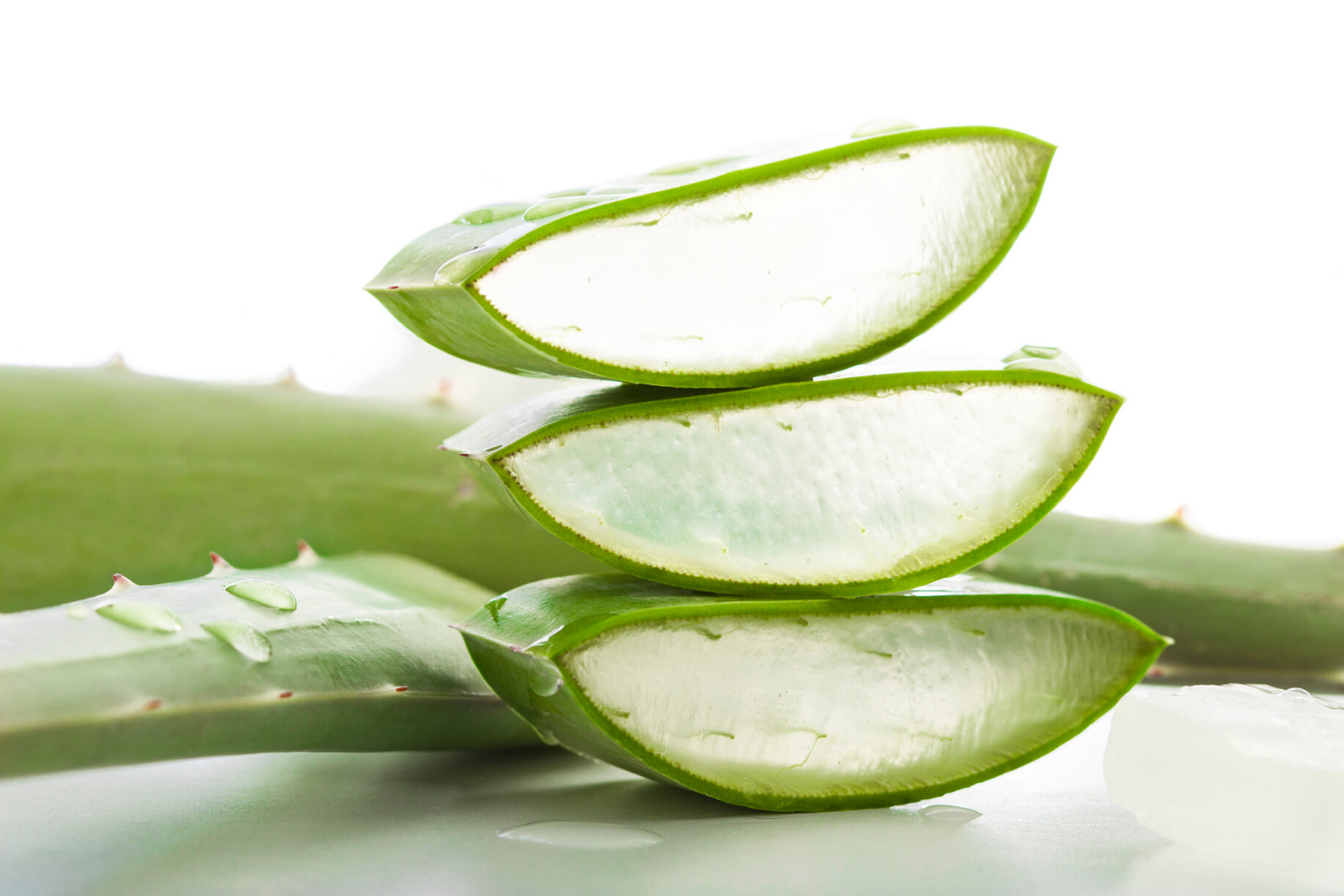
What is Aloe Vera?
Aloe vera is a plant in the succulent family known as the “plant of immortality”, given that it can flourish even without soil. Aloe vera has been used for centuries for its multiple benefits, with its use dating back thousands of years in Egypt.
Two substances are produced by the aloe vera plant, and are used in a variety of products: aloe gel and aloe latex. Aloe vera gel is the clear substance that comes from the inner part of the aloe vera leaf. It has a jelly-like consistency that can be applied directly to the skin or used as an ingredient in skincare products to help reduce inflammation, moisturize and treat other skin concerns like psoriasis. Aloe latex is yellow in color, comes from just under the leaf’s skin, and contains powerful laxative properties.
What are the Benefits of Aloe Vera?
Aloe vera has been used for a variety of purposes including healing wounds and lowering blood sugar levels, but is most widely used for treating and relieving mild to moderate sunburns, and keeping your skin from peeling. If you forget to apply sunscreen or spend too much time out in the sun, soothe your sunburnt areas with aloe vera to help moisturize and minimize inflammation.
Aside from being a miracle worker for sunburns, aloe vera is also known for being one of the best plants for skin since it contains 75 active components, including vitamins, enzymes, minerals, and fatty acids that help fight free radical damage and improve the complexion overall. Research shows that the plant has healing, anti-inflammatory, moisturizing, anti-aging, and antiseptic properties, which has led to the use of aloe vera for acne.
Is Aloe Vera Good for Acne?
Since it has so many benefits, you’ve likely seen aloe vera listed as an ingredient in many skincare products. This may leave you wondering, “Does aloe vera help acne?”
When vetting various ingredients and products as potential acne treatments, it’s important to first consider what causes acne. Treatments may be effective to a certain extent, but unless you determine the cause of your acne, there’s a possibility that your breakouts will continue.
If you’re prone to irritation and inflammation, or if you have acne-prone skin, aloe vera is a skincare ingredient you should incorporate into your daily routine. When applied topically, aloe vera gel can be quite effective for acne. It contains vitamin A and vitamin C, which are both highly reparative, powerful antioxidants that are beneficial for acne-prone skin. Aloe vera also has a calming effect on the skin, making it useful for soothing inflammation and problem areas.
4 Ways to Treat Acne with Aloe Vera
One of the best parts about using aloe vera for acne is that there are multiple ways to add this ingredient to your daily routine for healthy, glowing skin. Not every method will work for everyone, but thankfully, aloe vera is versatile. To start, here are some of our favorite ways to use aloe vera for acne.
1. Apply Aloe Vera Gel Directly to Your Skin
If you prefer to buy your own potted aloe vera plant, you can harvest the gel fresh. Keep in mind that the outermost leaves of the plant are the oldest, which means they’re the richest in nutrients and the best to use. When choosing a leaf, make sure it’s free of any mold or damage, then cut the leaf close to the stem using a clean knife or shears. Wash and dry the leaves, then remove the sharp spines and carefully peel away the skin to expose the gel. Cube the slabs of aloe vera or blend the gel. Use immediately by applying your fresh aloe vera gel directly to your skin.
Pro Tip: Store aloe vera gel in the refrigerator for an extra cooling, calming skin treat.
Looking for an easier alternative? You can also use store-bought aloe vera gel for acne. Creams and gels containing aloe vera vary in concentration and typically also include other ingredients that may help improve your complexion. However, make sure you read the ingredients label to know exactly what’s in the formula.
2. Use an Aloe Vera Face Mask
Using a face mask is one of our favorite ways to give skin a little extra TLC since it's the perfect way to treat your skin to a spa-like facial without even leaving the house. There are many different kinds on the market, such as sheet masks, mud masks, sleep masks, and clay masks, but it’s important to first know how to use a face mask properly
.Regular use of a face mask containing aloe vera for acne can help you nourish and calm your skin while also fighting off pesky breakouts. Our Pore Purifier Clarifying Masque is a vegan face mask that contains aloe vera to soothe the skin, along with tea tree and micro-silver to help refine pores and battle acne breakouts, making it the perfect option for those with acne-prone or oily skin. Use it up to twice weekly to help keep breakouts at bay.
It's Pore Perfection
A complexion perfecting superfood masque that instantly tautens and tightens skin without over-drying it, while making pores petite.
Get RefreshedIf you’re a fan of DIY skincare, there are many easy recipes for making your own aloe vera face mask. Some recipes call for lemon juice, however, lemon juice is highly acidic, and can cause dryness and kill good bacteria. Instead, mix aloe vera with colloidal oatmeal for a nourishing, soothing skin treat. For a skincare routine for dry skin, mix aloe vera gel with olive oil or coconut oil, which are both highly moisturizing.
When making a DIY face mask, mix your ingredients until you have a gel-like, spreadable consistency. Leave the mixture on your skin for 10-15 minutes, then rinse thoroughly using lukewarm water and pat your face dry.
3. Exfoliate Using an Aloe Vera Face Scrub
Skin looking a little dull? An exfoliating face scrub can rescue you from dull, tired, uneven skin. Exfoliation refers to the process of removing dead skin cells to reveal brighter, smoother skin underneath and improve the skin’s tone and texture. Buildup of dead skin cells can also clog pores and contribute to breakouts, so exfoliating regularly also helps fight acne.
Make your own aloe vera face scrub using aloe vera, apple cider vinegar, and sugar. Apple cider vinegar has antibacterial properties while sugar acts as a physical exfoliator to help remove debris and dead skin cells. Gently apply the mixture onto the entire face, using circular motions and being careful not to rub too harshly. Rinse it off with lukewarm water and follow with your favorite moisturizer.
4. Lighten Hyperpigmentation Using Aloe Vera Gel
Aloe vera can also help get rid of hyperpigmentation and dark spots left on the skin from acne breakouts. Aloesin, a compound found in aloe vera, inhibits melanin production, which may help lighten hyperpigmentation.
Apply aloe vera consistently and you may notice an improvement in your complexion. Remember that it takes roughly 28 days for the top layer of skin to regenerate so be patient!
Things to Keep in Mind When Using Aloe Vera for Acne
Although your complexion can benefit from using aloe vera for acne, there are a few things to watch out for when adding this ingredient to your daily skincare routine.
- Go fragrance-free: As with all skincare products, be sure to use an aloe vera product that is fragrance-free. Artificial fragrances can cause irritation and potentially make acne worse.
- Don’t go overboard: If overused, aloe vera can dry out the skin since the enzymes found in the plant act like an exfoliator. As you may know, the dangers of over-exfoliating include irritation, flaking, redness, and worsened breakouts.
- Patch test it first: Always exercise caution when introducing a new ingredient or product to your routine. Your skin can develop allergies and sensitivities over time, even if you don’t have a history of sensitive skin. To avoid potential negative reactions, patch test new skincare products before using them on the entire face.

Abby Vinas
Abby Vinas has long been an active member of the holistic health community, advocating in favor of its benefits to both our physical and emotional well-being. Her commitment to leading a healthy lifestyle has made her an authority on self-care practices. Abby is passionate about fitness, nutrition, and proper skincare, and is also an avid lover of avocado toast and dog-petting.
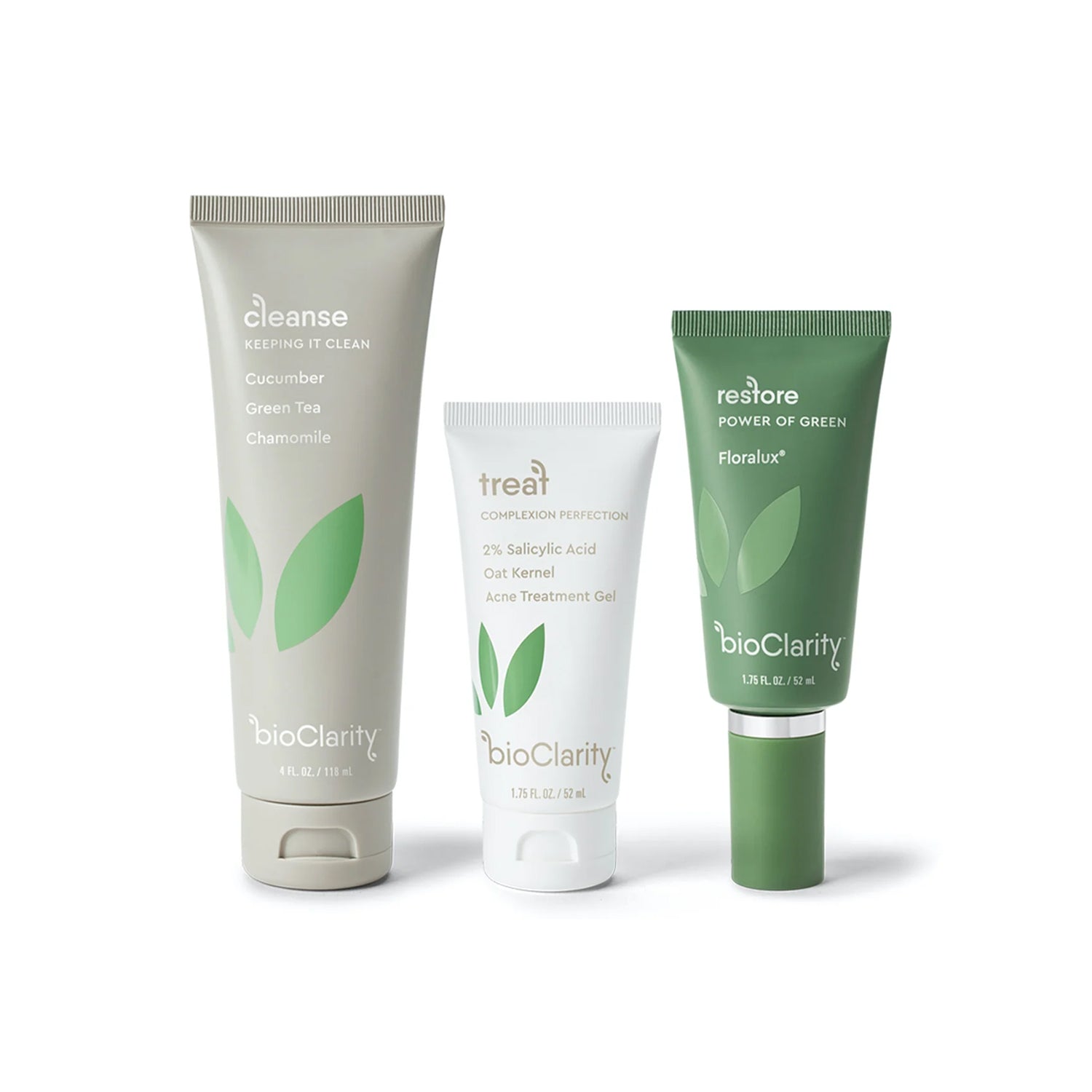
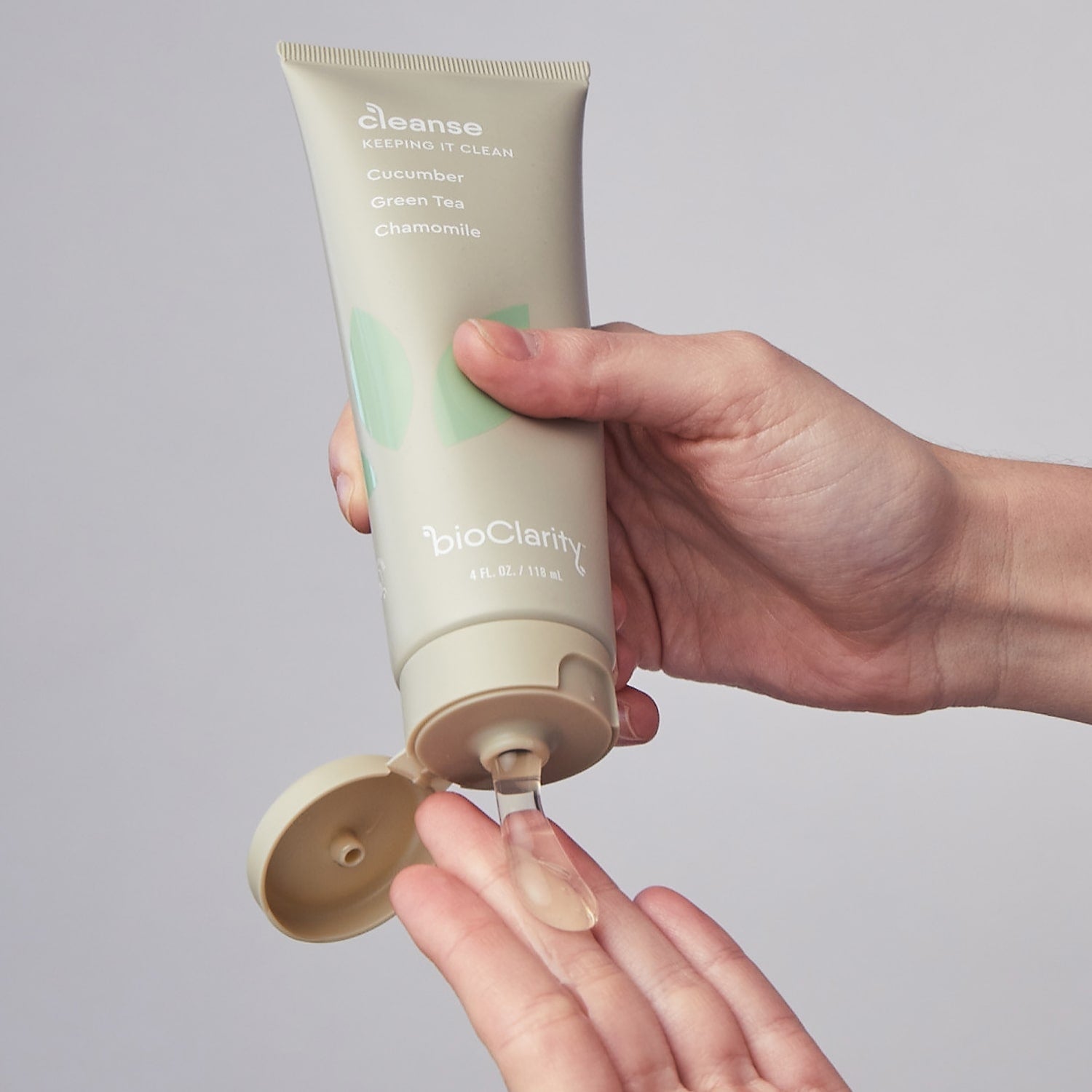
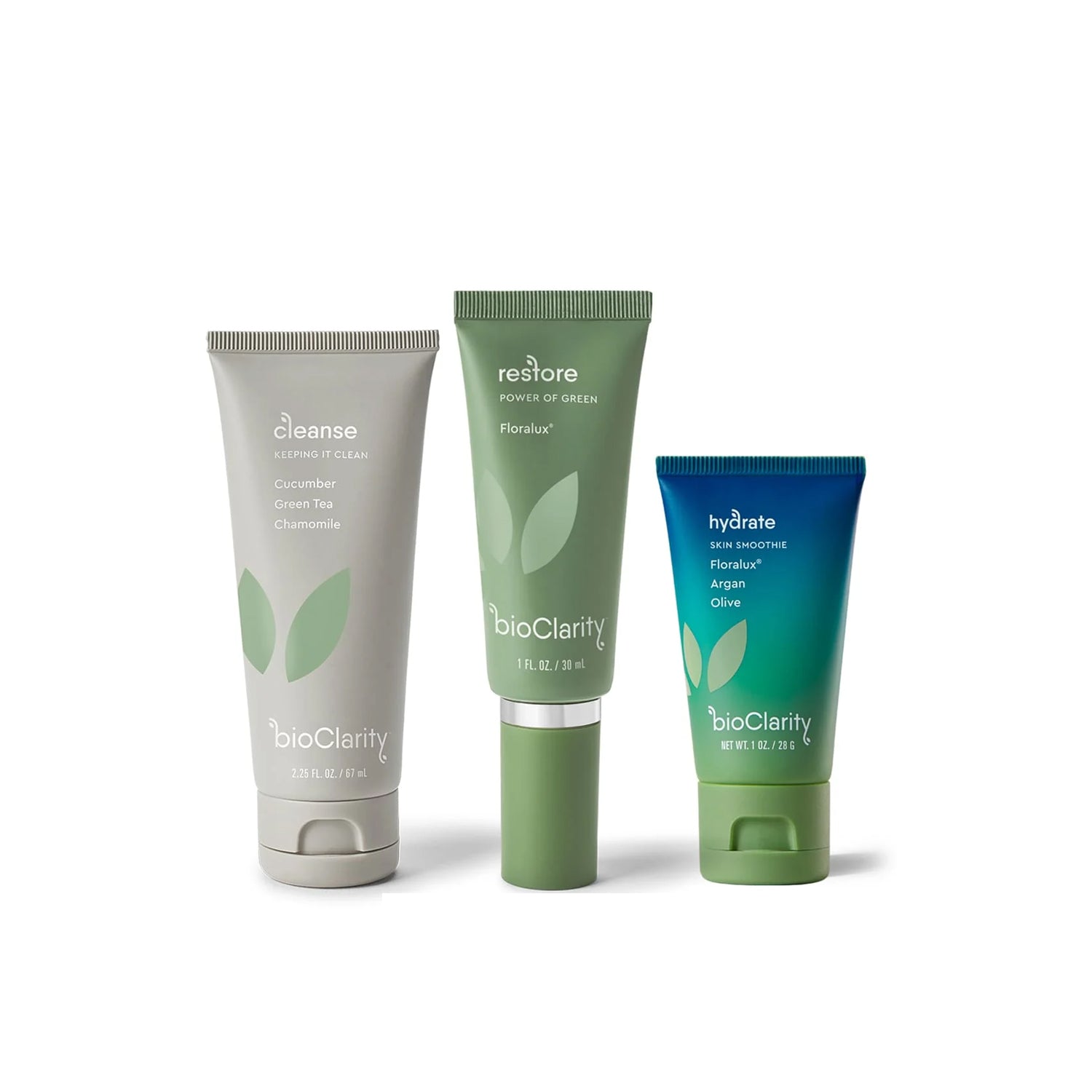
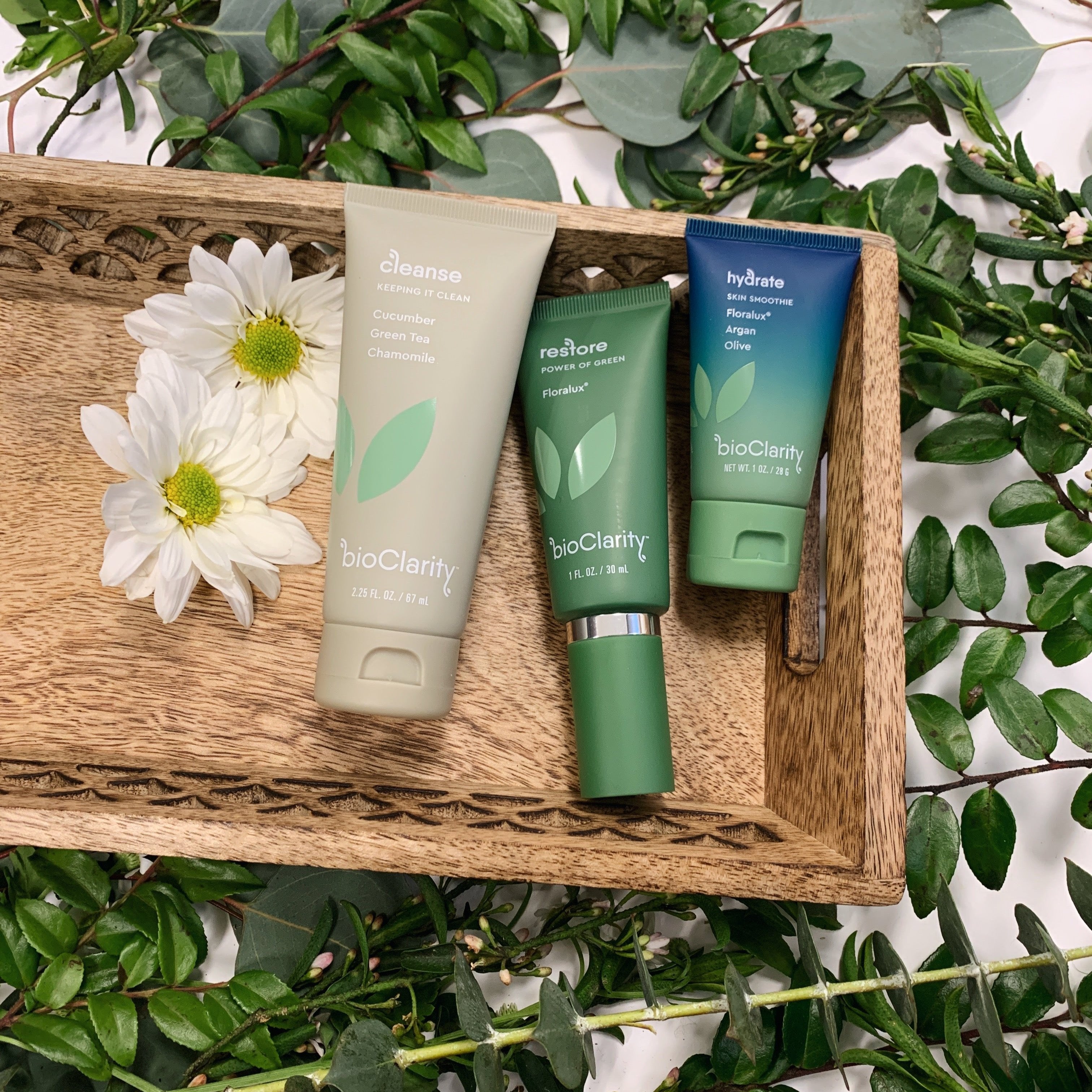
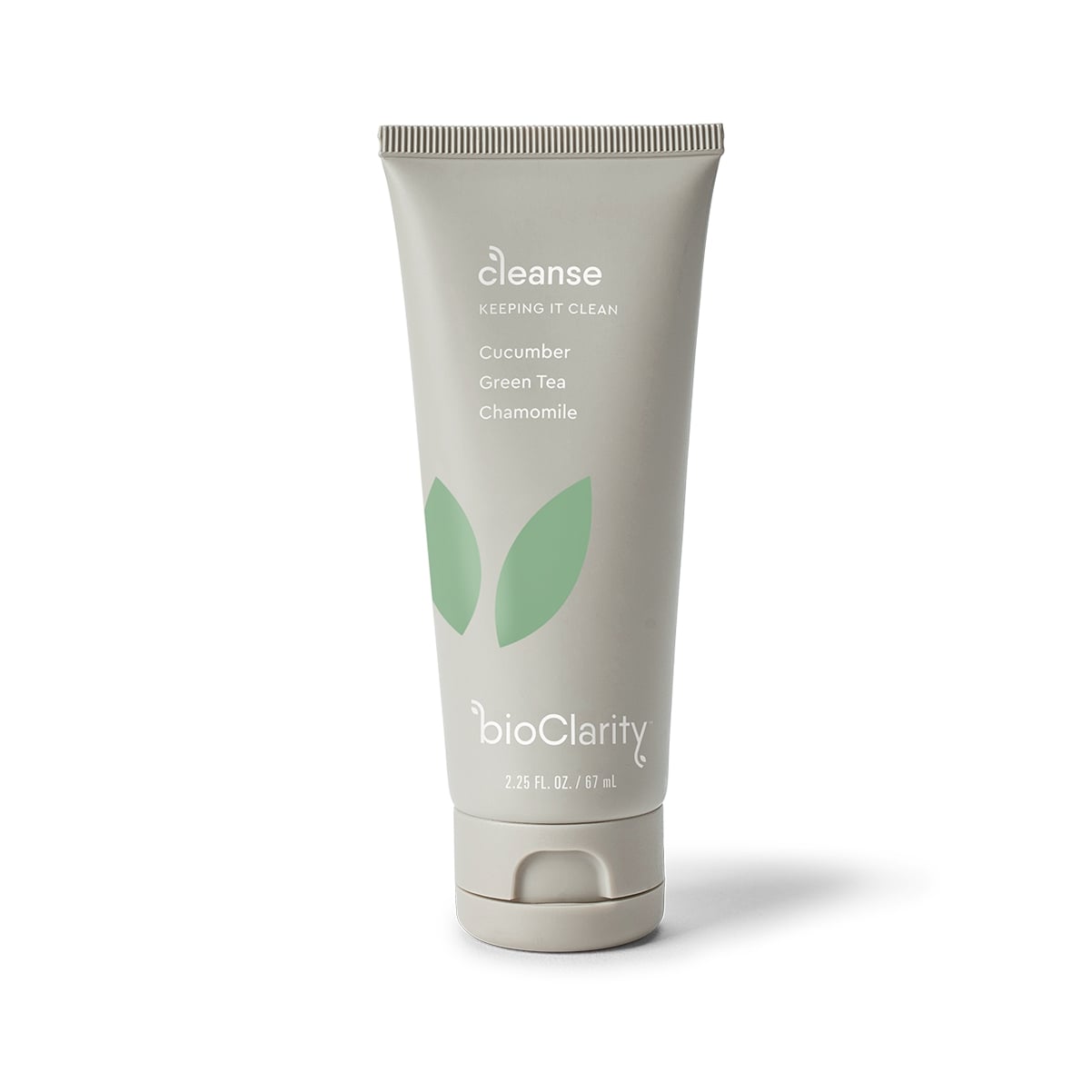
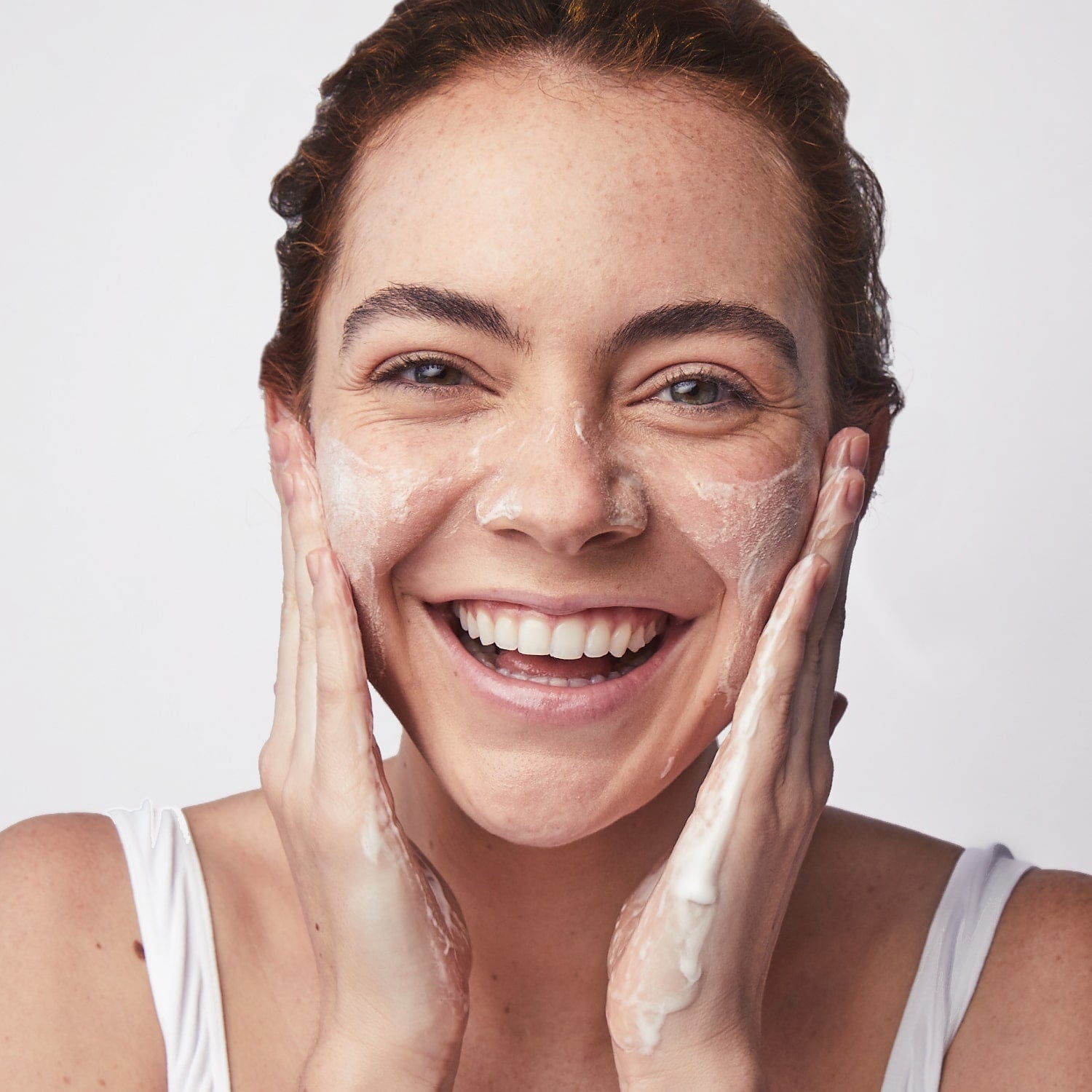


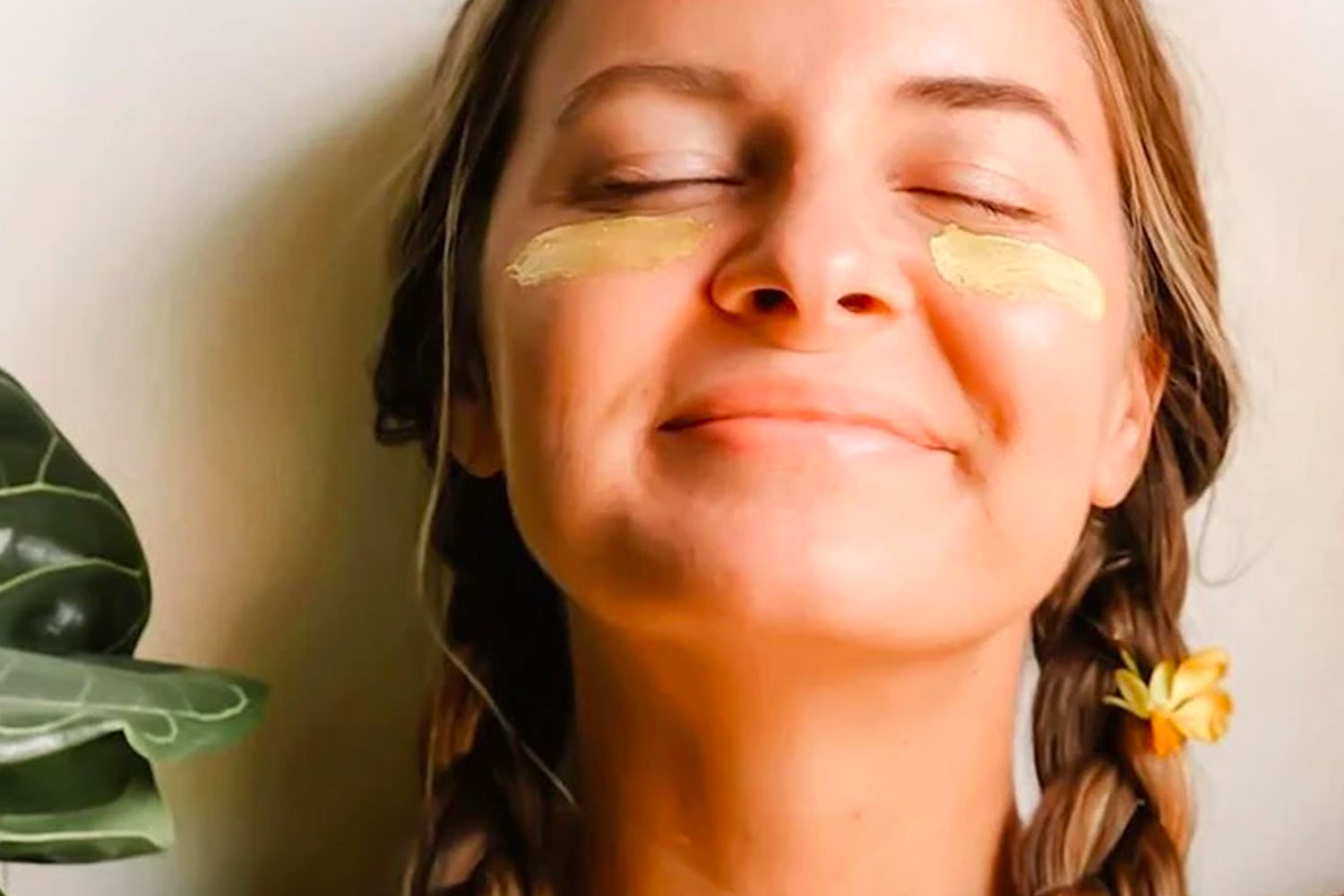
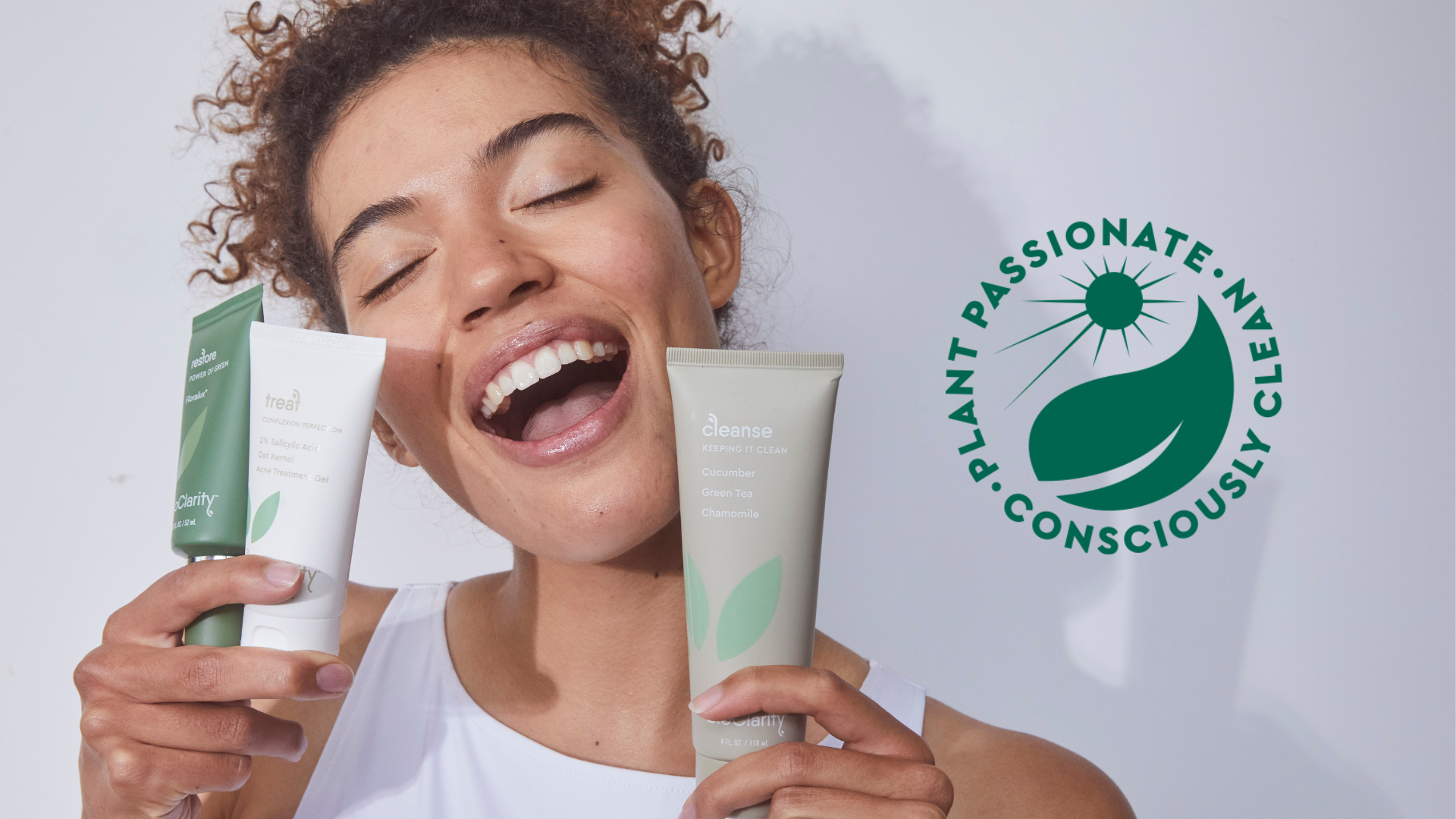
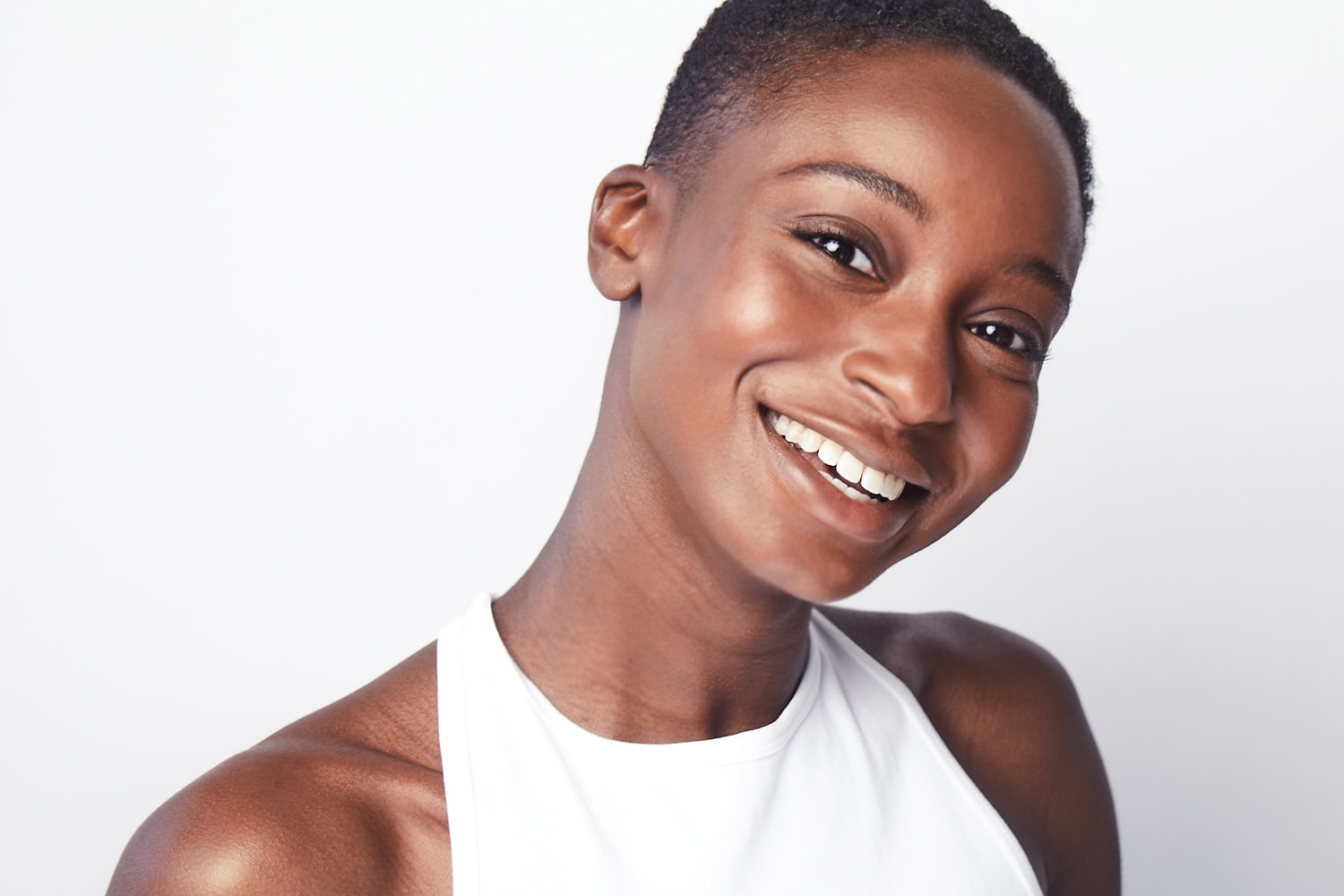
Comments
Mohammad Roman —
this is great advice, for even better results use a skincare grade aloe vera like the 10X-D. It has smaller molecules than aloe vera gel so it is able to penetrate the skin.
https://ageless-products.com/aloe-vera-10x-d-gel-for-skin-and-scalp-issues-cosmeceutical-grade/